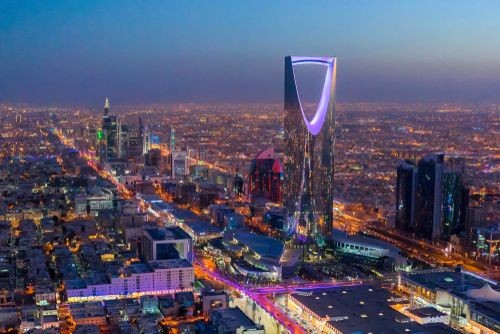Why relations between the Arab Gulf countries and Russia are getting closer
The Middle East is witnessing rapid and violent changes that affect international stability and peace. For the Arab Gulf in particular this is a challenge, politically, economically and socially as well as on the security and social fronts.
The Iranian-American agreement, the Yemeni and Syrian crises, the deteriorating situation in Egypt, Iraq and Libya means that terrorism and armed organisations are all issues that bear the signs of fundamental changes that will affect the Gulf and its security.
What are the strategies adopted by the Gulf States to confront these issues? How will they face the challenges and risks resulting from these situations, and how will they deal with them in the future? What are the opportunities for cooperation with other international powers in order to find solutions to get out of some chronic crises or mitigate their effects?
Since the beginning of the third millennium, the Gulf States have been major players in shaping strategies related to the Middle East due to their location and their economic wealth.
There are other factors too that have made the Gulf states important and influential players, militarily, economically, and politically. One of these is that many oil tankers pass through the oil ports located on their coasts, because most of the surrounding countries are oil exporters. The waters of the Persian Gulf is one is one of the world's busiest waterways, which also include oil and gas fields.
What has helped the Gulf region to play this pivotal role was the situation in the countries involved in the Arab Spring and the changes that affected regimes in the wake of the Arab revolutions.
When most of the North African countries were experiencing geopolitical changes which made them unstable, the Gulf was politically and economically stable. Therefore, they were able to influence other countries in its neighbourhood.
The Gulf States also worked with international partners to stabilise several hot spots such as Libya, Syria, and Iraq. The openness of the Gulf to Russia is a strong signal that they are sending the US, in particular. For a long time, the US was alone in determining the fate of many countries in the Middle East. Nevertheless, Russia's entry into the Gulf means that a geopolitical change is inevitable, especially since many of the countries in the region, including Egypt, have realised the importance of Russia. The Gulf countries have also sought to find solutions to some crises such as Yemen and Syria. Moreover, the Gulf States aimed at relying on Russia to find a kind of global balance, away from American hegemony.
The Syrian and crisis, the Yemeni crises, the situation in Iraq and Libya, and the dominance of military organisations such as ISIS , for example, are among the issues that affect the security and stability of the Gulf, in the same way that they affect international peace and security.
What has made things easier is that there has been a congruence of the Russian vision and Gulf visions. This has facilitated rapprochement and made it possible to reach viable solutions.
Both Russia and the Gulf states have a desire to move quickly, and to find comprehensive solutions that secure stability in the
world.
Russia has succeeded in reaching consensus with all parties in the Gulf. Therefore, Russia has become an ideal partner for the Gulf States.
Moreover, the Gulf States are more prepared today than ever before to play a pivotal role globally, not only by virtue of their position and wealth, but also by virtue of the moderation of their leadership and their innate willingness to help bring peace to the volatile regions of the world.
The Middle East is in dire need of the moderate role taken by the Gulf States so that security and stability is restored, especially since Arab security is a regional priority.
The Middle East region is also in needs of cooperative alliances and partnerships that restore stability to the region and do not negatively affect the stability of the Arab Gulf region. The whole world views the rising power represented by the Gulf countries with respect, because these states present a balanced force and does not have expansionist goals. What matters is the unity and stability of the Middle East.


Comments